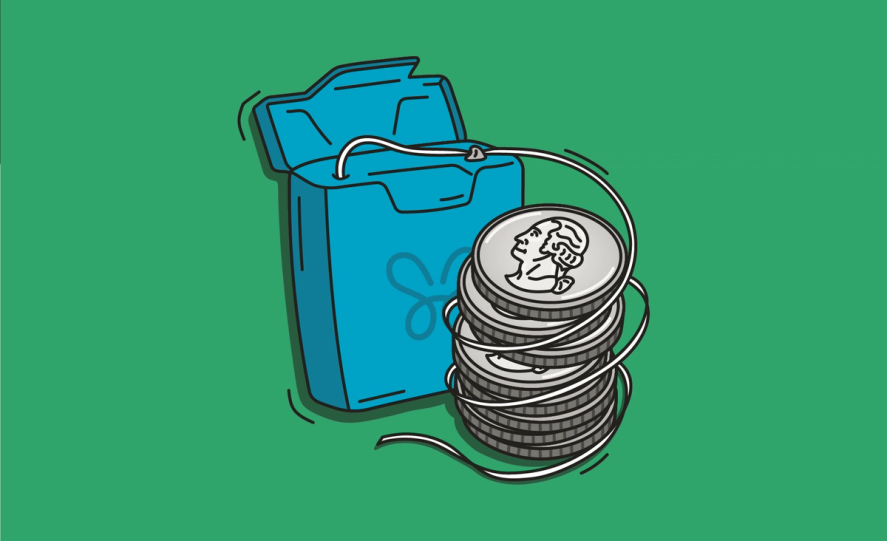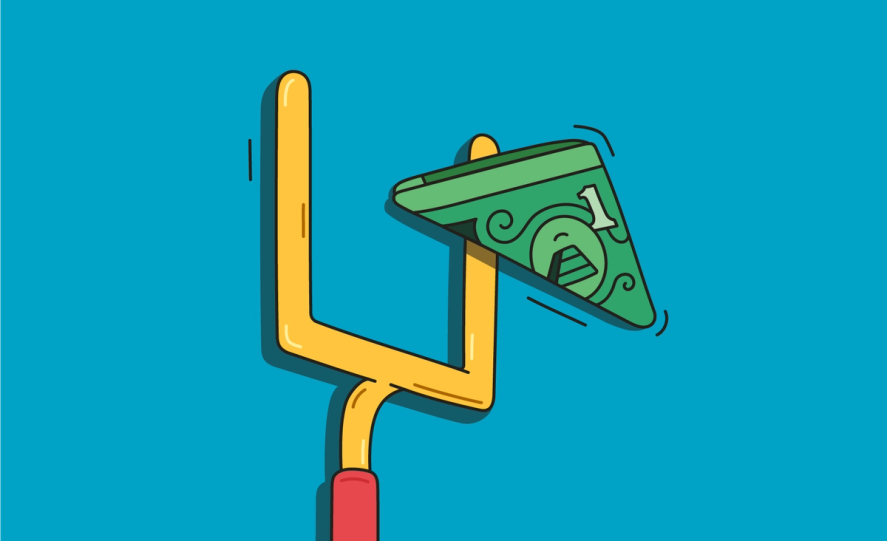It’s widely accepted that talking openly about money is key to financial freedom, yet 62% of Americans don’t. To help couples feel less awkward and more aligned, we’re sharing low-pressure ways to talk about essential money topics—including real-life ice breakers from our Monarch Team.
–
Couples who learn how to hack each others’ money habits can go further together with their finances than they may have thought. The way to do it is painfully simple: Don’t try to fix things.
Of course, there’s always room for improvement—no one has perfect money habits. But you and your partner don’t necessarily need better habits right away. (You two also don’t need the stress and pressure that come along with that kind of striving.)
For now, try brainstorming how you can use your current money habits to make financial collaboration feel more collaborative.
Why are money habits important to talk about with your partner?
At this point in our lives, our money habits are essentially automatic. We’ve trained our brain to effortlessly execute the things that come easy to us or that we find pleasurable. But if we can barely notice our own money habits, we can’t expect our partner to either.
By sharing them with each other, couples have an opportunity to use their individual money habits to their collective advantage.
Couples can benefit from talking about habits because:
- They can help establish who should be doing what. Money habits reveal which tasks you’re least stressed about and most dialed into. With this intel, partners can choose responsibilities according to their proficiencies and preferences so tasks feel more manageable.
- They can be coordinated to support financial outcomes you both want. When you’re clear with your partner about how hands-on you want to be or what aspects of finance you care about most, couples can feel more confident that their individual habits are supporting joint goals.
- They reveal contributions that might otherwise go unnoticed. Many money habits aren’t obvious or regimented, like tapping an app to check account balances. Don’t forget to recognize the quiet actions you or your partner take.
What if my partner has different money habits than me?
Having different money habits than your partner can feel like your couple's superpower if all it takes to manage money is playing to your opposite strengths.
But it’s much more common for couples with different money habits to struggle to get on the same page—and for good reason. Money habits are basically hardwired, making change feel impossible or embarrassing or like a waste of time.
Here’s the thing: You and your partner’s money habits do not need to change, get better, or be the same to manage money together—and manage it well.
If one person likes to be more in the weeds with finances than the other, or one person prefers to be hands-off, that’s OK. Instead of trying to force something that doesn’t feel natural, shift the focus to ways you can stay on the same page.
How can you start talking about money habits with your partner?
Try these if you’re ready to start talking habits:
- A little change that made a big difference to my money habits was …
- One money habit I have that I don’t give enough credit to is …
- If I could give my spending style a catchphrase or nickname it would be …
- The nerdy money task I actually like doing is …
Try these if you want to get a little deeper:
- The money habits I have that take the least effort to do are …
- For me, “checking in on my finances” looks like …
- The last time I had a good-money-habits-streak was …
- I’d like to be as good at managing money as I am at …
Top ways to improve your money habits with Monarch
- Have a reminder to review your transactions in the Monarch app at least once or twice a week, or daily if your budget is tight. Maybe you and your partner take turns checking on different days so you can each catch different transactions.
- Check in on your budget every week to see how you’re pacing toward your planned spend, particularly flexible expenses, and see if there are areas where you can be more mindful about spending.
- Ask the Monarch AI Assistant how much you’ve already spent on [insert purchase here] this week or month before you go to spend more on it.
FAQ
What if I can’t think of a good money habit?
Our culture loves bucketing money habits into good ones and bad ones. For now, try to forget about those loaded labels and instead, try this quick exercise:
- Write down one or more money habits you don’t mind doing.
- Write down one or more money habits you forgot that you do.
When you review your answers, we hope that you see what we see: you’re not starting from scratch.
What if my partner doesn’t want to be involved with finances?
Start by gently exploring why. Is it stress? Are they worried about messing things up? Is it just a preference? Does it stem from childhood money issues? Do more listening than talking at this stage. It’s crucial to get an understanding of where they’re at so you can continue the conversation empathetically.
Next, clarify what "involvement" means to each of you. Maybe you think it means “day-to-day oversight” and they think it means “occasional check-ins.” Instead of trying to force anything, try easing into the idea of involvement by offering suggestions for how they could participate according to their own definition. In this example, they might feel more comfortable chiming in on monthly reviews, talking through major decisions, or setting shared goals.
No matter how involved they decide to be, show them where to find your joint financial info if they ever want it. Consider designating someone to step in to help them if you're not around. We like directing less involved partners to Monarch, where they can see a full picture of your finances in one view. It can be helpful as a bridge to more regular participation.





